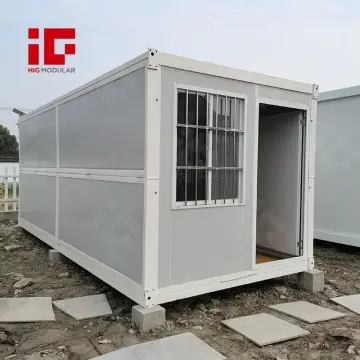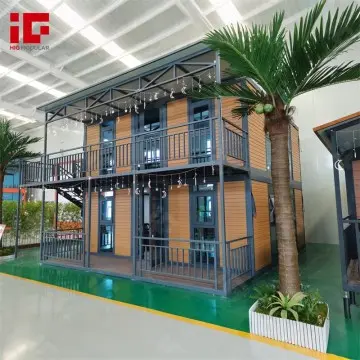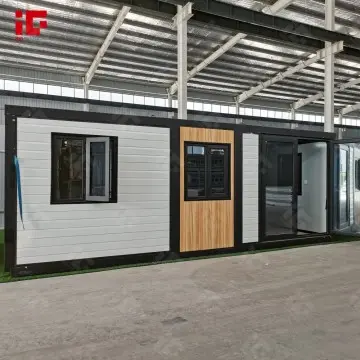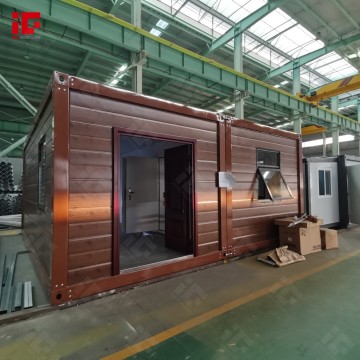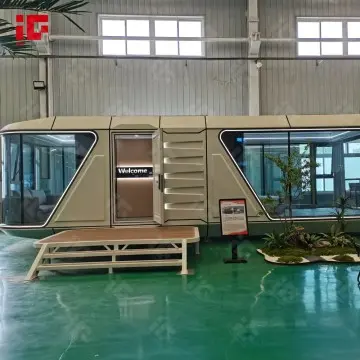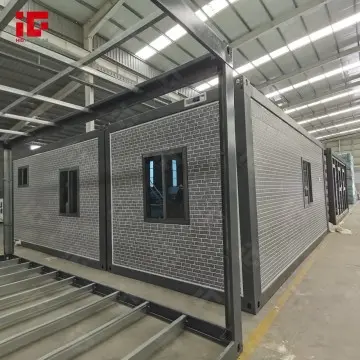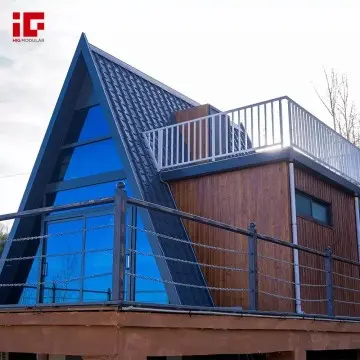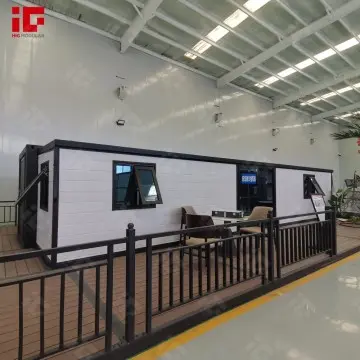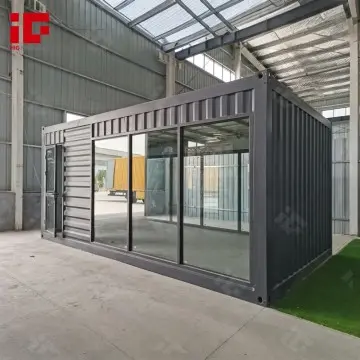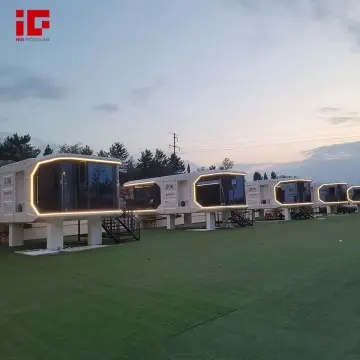Products Categories
Featured Products
Foldable Container House: The Revolutionary Solution for Modern Commercial Spaces
In recent years, the global commercial landscape has witnessed a remarkable shift toward flexible, innovative, and cost-effective space solutions.
- After-sale Service Online technical support
- Application Restaurant/Coffee Shop/Shop/House etc.
- Place of Origin China
- Size 20FT/40FT or Customized
- Color Customized Color
Product Detail
In recent years, the global commercial landscape has witnessed a remarkable shift toward flexible, innovative, and cost-effective space solutions. Among these, container-based businesses—ranging from chic container coffee shops to vibrant container restaurants—have emerged as a defining trend, captivating entrepreneurs and consumers alike. However, traditional shipping container houses, while aesthetically appealing, often come with prohibitive costs, logistical challenges, and complex installation processes. Enter the Foldable Container House: a game-changing innovation designed to redefine how businesses approach spatial needs, especially for ventures like container restaurants, coffee shops, and retail stores.
Design & Versatility: Beyond a Standard Container
At first glance, the Foldable Container House retains the rugged, industrial charm that has made traditional shipping containers a favorite for commercial design. Its exterior echoes the iconic corrugated steel panels of maritime containers, allowing brands to leverage the “container chic” aesthetic that resonates with modern consumers—think exposed metal, clean lines, and a nod to urban minimalism. Yet, beneath this familiar exterior lies a design optimized for versatility.
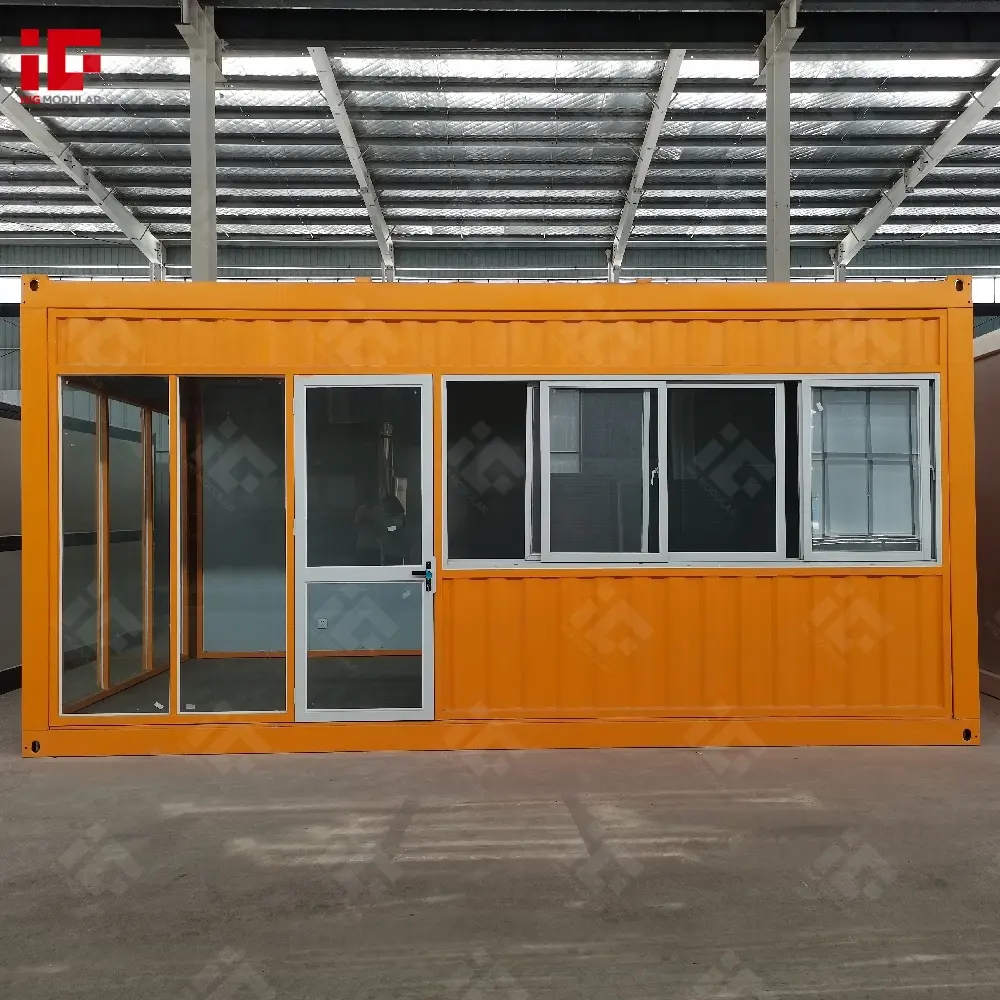
Unlike rigid shipping containers, the Foldable Container House is engineered to adapt to diverse commercial roles. For a container coffee shop, large glass windows and doors (as seen in product imagery) invite natural light, creating an open, welcoming atmosphere that draws passersby. The same structure can transform into a container restaurant with modular interior layouts—e.g., movable tables, built-in kitchenettes, or bar counters. Retail entrepreneurs, meanwhile, can customize shelving, lighting, and display units to create a container shop that reflects their brand identity.
The secret to this adaptability lies in the foldable design’s modularity. When collapsed, the unit condenses into a compact form; when expanded, it unlocks a spacious, weatherproof interior (typically 20–40 square meters, depending on the model). This flexibility means businesses can start small and scale up—for example, a coffee shop might begin with a single unit and later add adjacent modules to create outdoor seating or a roastery area.
Cost Efficiency: Save More Than Half the Budget
For small business owners, cost is often the biggest barrier to entry. Traditional shipping container houses require significant investment: not only is the initial purchase price high, but transportation (due to their fixed size) and installation (which may involve cranes, foundations, and weeks of labor) add unexpected expenses. The Foldable Container House shatters these financial barriers.
First, the price point: Foldable Container Houses cost less than 50% of traditional shipping container houses. This is because the foldable design reduces material waste during manufacturing and streamlines production processes. For example, a standard 20-foot traditional container house might cost $15,000–$25,000, while a comparable foldable unit starts at just $7,000–$12,000.
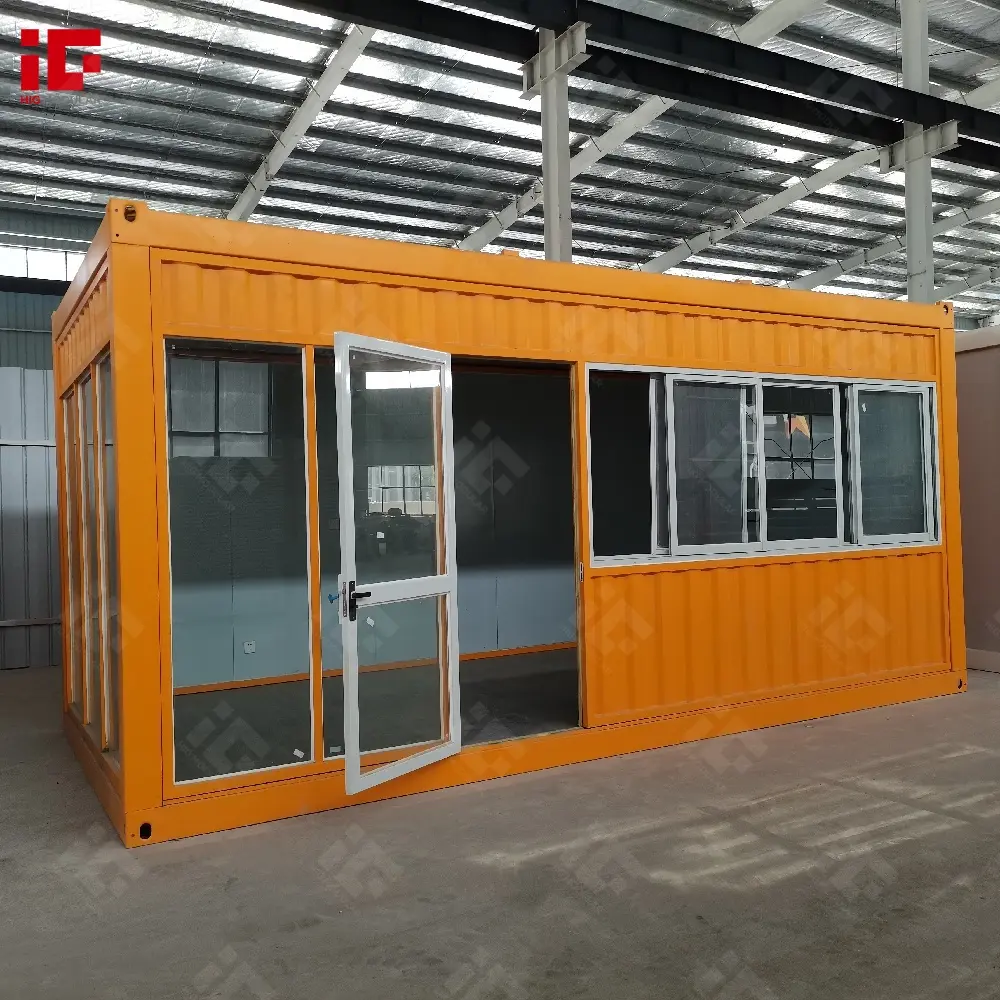
Transportation costs are another area of savings. A single truck can carry 3–4 folded units, whereas traditional containers require one truck per unit. For a business expanding to multiple locations—say, a coffee chain opening three stores—this translates to a 60% reduction in shipping fees. Even for international shipments, the compact folded size slashes ocean freight costs, making global expansion feasible for small brands.
Long-term savings are equally compelling. The Foldable Container House’s installation process is designed for speed: a team can assemble a unit in 1–2 days, compared to 1–2 weeks for traditional containers. This minimizes labor costs and allows businesses to start generating revenue faster. Additionally, the units’ insulation and energy-efficient windows reduce heating/cooling expenses, cutting operational costs by up to 30% annually.
Easy Installation & Mobility
One of the most frustrating aspects of traditional container houses is their installation. They require heavy machinery, specialized labor, and often permanent foundations—making them impractical for temporary or mobile businesses. The Foldable Container House eliminates these headaches.
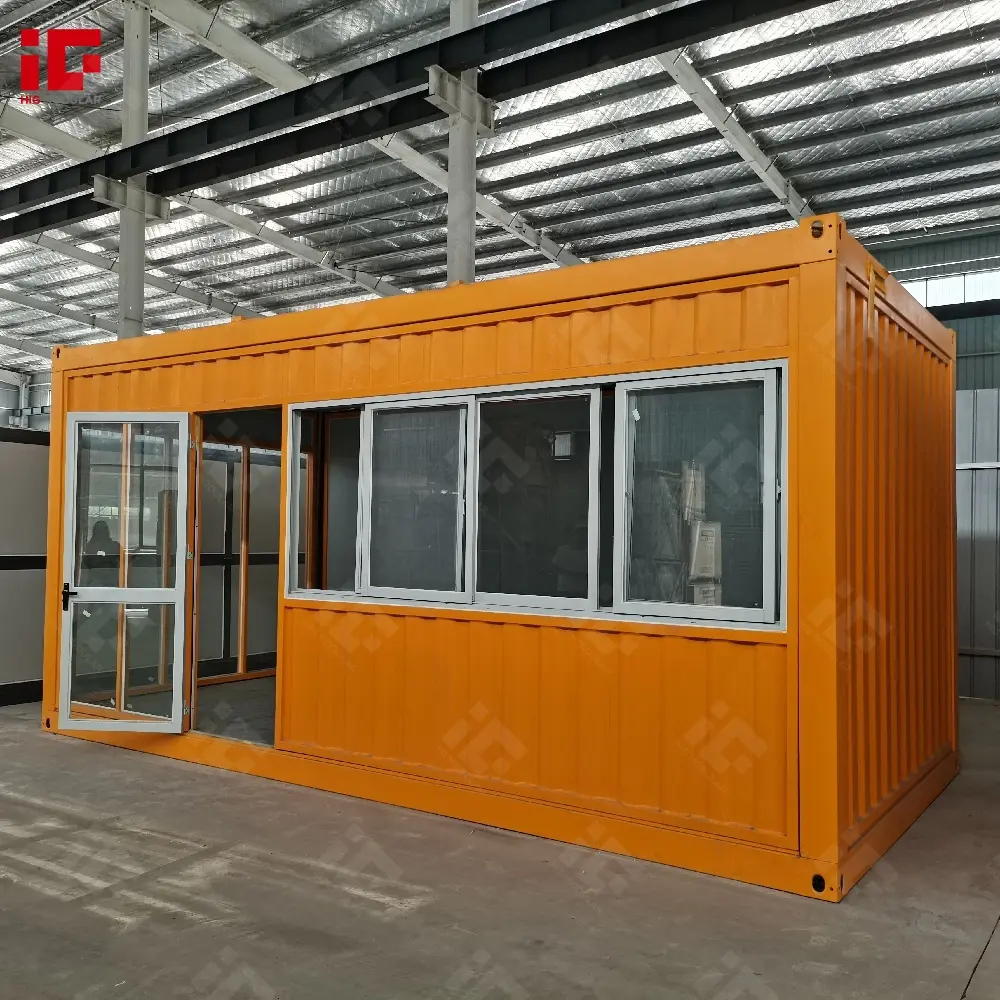
Installation begins with unpacking the folded unit at the desired site. The process involves securing the steel frame, expanding the walls, and attaching pre-installed components (like windows, doors, and electrical wiring). Unlike traditional containers, which may need crane lifts or foundation work, foldable units can be placed on a flat, stable surface (e.g., concrete, asphalt, or even compacted gravel). This “plug-and-play” approach means a coffee shop can go from delivery to serving customers in as little as 48 hours.
Mobility is another standout feature. If a business wants to relocate—for example, a seasonal beachside restaurant moving inland during winter—the Foldable Container House can be collapsed, loaded onto a truck, and reassembled at the new site. This is a game-changer for pop-up shops, festival vendors, or brands testing new markets. No longer do entrepreneurs have to choose between “permanent” and “temporary”; the foldable design offers the best of both worlds.
Customization: Tailor to Your Brand Identity
A common misconception about container houses is that they’re “one-size-fits-all.” The Foldable Container House dispels this myth with extensive customization options, allowing businesses to stand out in a crowded market.
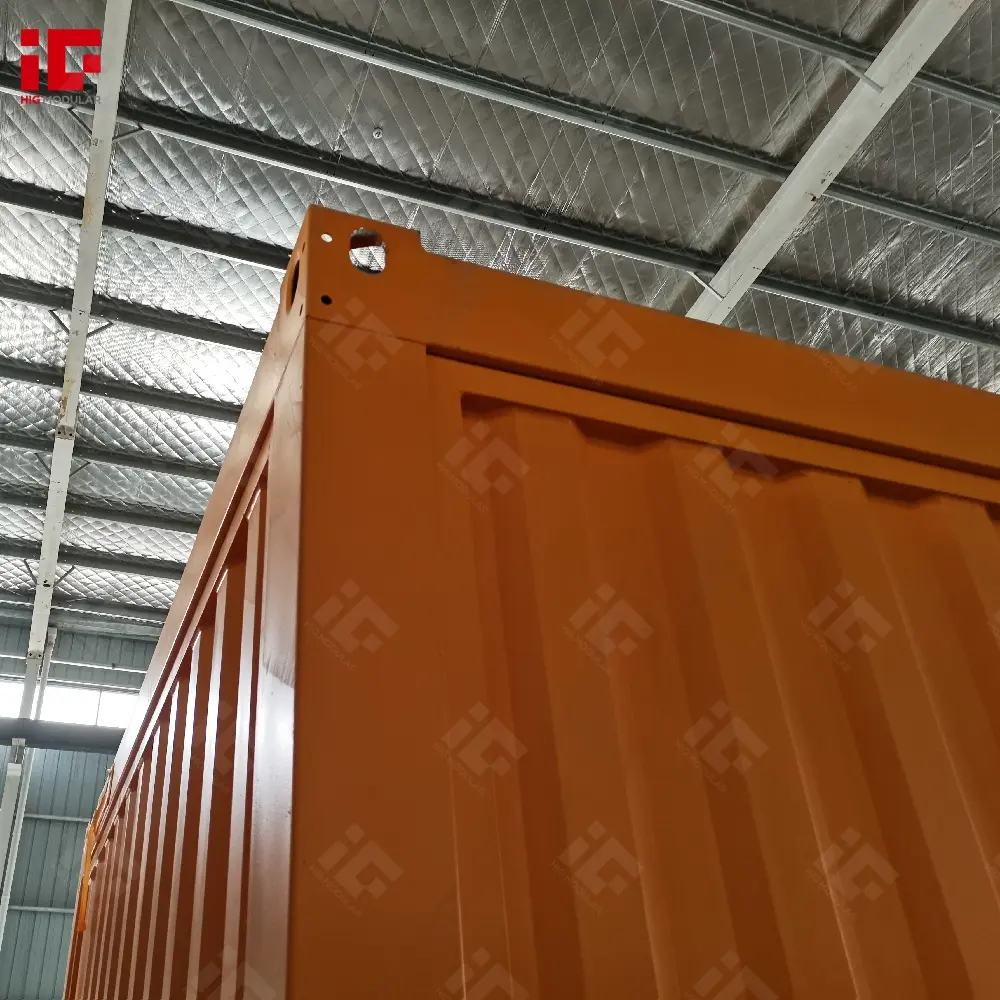
Exterior customization includes color matching (to align with brand palettes), logo integration (via decals or metal signage), and add-on features like awnings, balconies, or planters. For a coffee shop named “Sunrise Brew,” a warm orange exterior (as seen in product imagery) paired with a branded awning creates instant recognition.
Interior customization is equally robust. The modular frame supports adjustable walls, so a restaurant can reconfigure seating from 20 to 40 guests for special events. Electrical and plumbing lines are pre-routed, making it easy to add an espresso machine, refrigerators, or point-of-sale systems. Materials like reclaimed wood, stainless steel, or acoustic panels can be integrated to match the brand’s aesthetic—whether that’s rustic, futuristic, or minimalist.
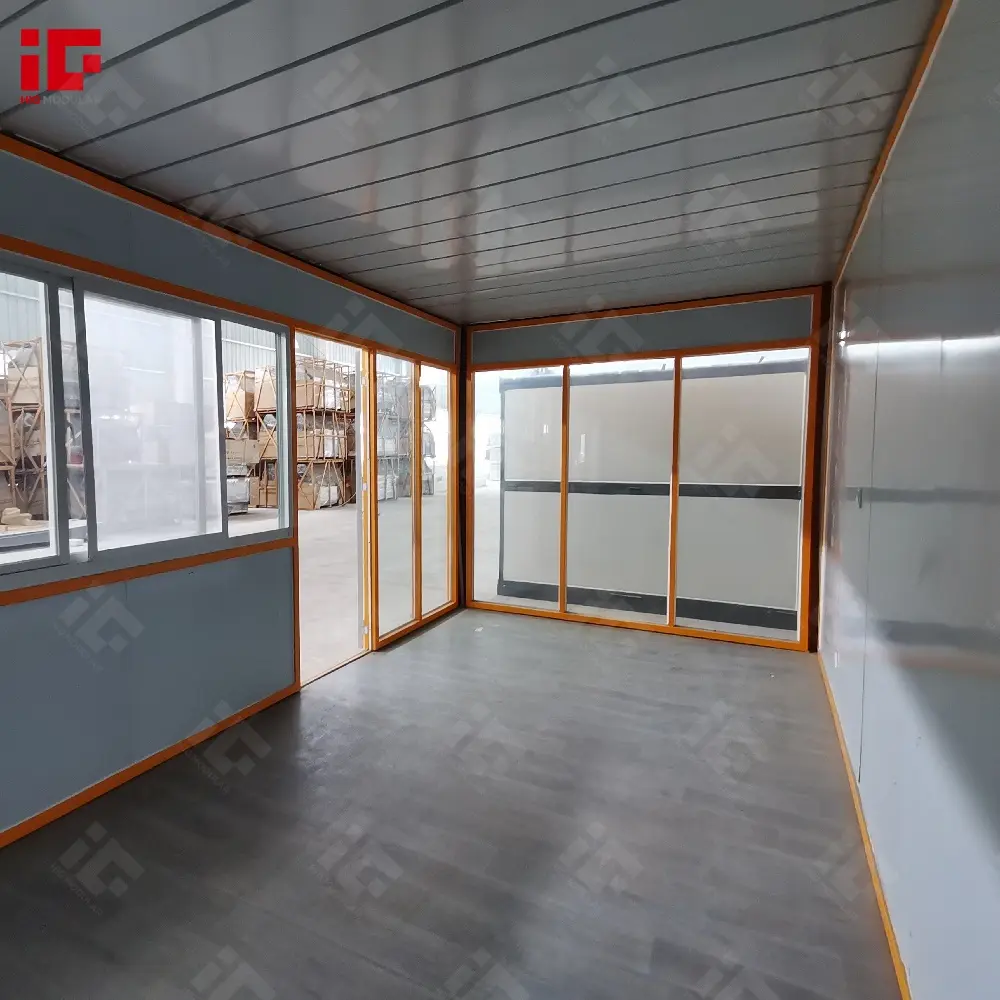
For tech-savvy brands, smart features can be pre-installed: IoT sensors for temperature control, Wi-Fi-enabled lighting, or even touchless payment systems. These additions not only enhance the customer experience but also position the business as innovative and forward-thinking.
Conclusion: Why Foldable Container House is the Future of Commercial Spaces
The Foldable Container House is more than a product—it’s a paradigm shift for entrepreneurs. It addresses the core pain points of traditional container houses (cost, logistics, inflexibility) while amplifying their strengths (aesthetic appeal, durability). For container restaurants, it means opening a stylish, functional eatery without draining savings. For container coffee shops, it’s a way to test a new location with minimal risk. For container shops, it’s a flexible retail space that grows with the brand.
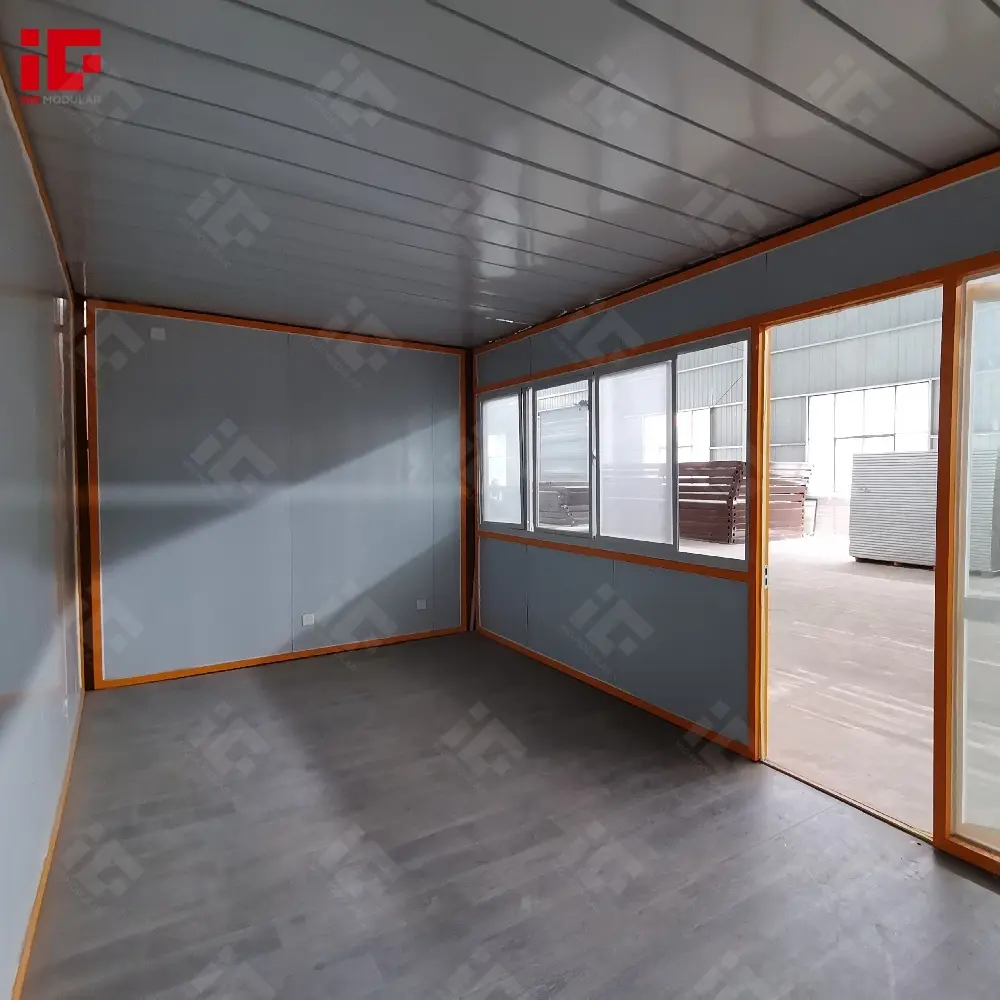
As the global economy continues to favor agility and innovation, the Foldable Container House stands out as a solution that’s affordable, adaptable, and future-proof. Whether you’re a first-time entrepreneur or an established brand expanding into new markets, this product offers the tools to build a space that’s as unique as your business.
In a world where “permanent” is becoming a thing of the past, the Foldable Container House is the key to unlocking commercial success—one fold at a time.

